What Is Expecting value line 1 column 1 (char 0) Error?
Expecting value line 1 column 1 (char 0) or “Error While Installing” pop-up on Mac is a message that may appear in the form of pop-up on your macOS, and could be caused by unwanted software or even malware.
These pop-ups could be caused by a Trojan, that may aim to steal certain information from your Mac, like your passwords or download other viruses on your device.
What Is Malware on Mac?
Malware is a type of software that can be harmful to your Mac and your privacy. It can be installed if you download items from emails, messages, and websites, and can range from being annoying to controlling your Mac to collect personal and financial information, host dangerous or illegal content, send spam, or jeopradize other computers on the network. To ensure that you avoid malicious download items, only open them if they come from a legitimate and trusted source.
Expecting value line 1 column 1 Summary
| Name | Expecting value line 1 column 1 (char 0) |
| Type | Mac Virus |
| Short Description | This message appearing means that this error message could be the consequence of some type of Malware added on your Mac. |
| Symptoms | A pop-up appears, claiming there is a system error with your Mac. |
| Distribution Method | Bundled downloads. Web pages which may advertise it. |
| Detection Tool |
See If Your Device Has Been Affected by Expecting value line 1 column 1
Download
Malware Removal Tool
|
Expecting value line 1 column 1 – How Did I Get It?
Seeing this error message may be a false alarm, indeed.

It could be just a problem that is related to a recent update or some software malfunctioning on your Mac. The error appearing on Mac seems to address some type of problem with the coding of a specific program. But this program may not always be legitimate. As we at SensorsTechForum have seen over our years of experience, malware often uses fake Window pop-ups to get you to allow them to be slithered on your Mac. These pop-ups often contain confusing or deceptive messages.
These messages may get you to click on “Ok” or “Accept” which could silently grant permissions to the creators of a dangerous malware, from the likes of:
- Rootkits.
- Trojans.
- Adware viruses.
- Botnets.
- Ransomware for Mac.
Expecting value line 1 column 1 – What Does It Do?
The most likely problems that you could find yourself in if your Mac has been infected by a dangerous virus are probably related to data theft and harm done to your Mac and the information in it. Such virus activities could be the following:
- Damage causing your files to no longer be able to be opened.
- Tapping into your microphone or camera.
- Stealing files.
- Deleting files.
- Controlling your internet connection.
- Downloading an adding other adware.
- Taking screenshots.
- Logging the keys you type in real-time.
- Stealing passwords and other information saved on your web browser.
Is Expecting value line 1 column 1 (char 0) a Virus
Expecting value line 1 column 1 might be a common error, but could also be caused by malware. As mentioned in many inquiries by people who have seen this error, anything is possible at this point. Many people who have reported it on Forums like Apple community and Reddit have later scanned their Macs using anti-malware programs and had detected some malware. Then again there were those users who found it to be nothing but a simple error message.
This is why, the best make sure that it is not a malware, we would strongly recommend that you check your computer for any viruses and other unwanted programs as a result of this error being displayed. The main reason for that is this pop-up may be caused by the following types of malware:
- Browser Hijacker.
- Trojan.
- Rogue software or scam.
- Adware.
- Other malware.
It is also strongly recommended that you do a backup of your files and change all of your passwords from a safe device.
Is Expecting value line 1 column 1 (char 0) Dangerous?
If the source of this pop-up errors is malware, then your Mac is exposed and you should take actions towards protecting it.
How to Remove Expecting value line 1 column 1 from Mac
If you want to remove this malware from your web browser, then we strongly recommend that you follow the removal steps that have been posted beneath this article. They contain the steps, necessary to help you erase this software effectively from your Mac and secure it. For the best protection and removal, cyber-security experts strongly recommend that you scan your computer using an advanced anti-malware software. Such a program is made so that it helps detect and automatically take care of this nasty error pop-up and other malware that may be infecting your Mac.
Steps to Prepare Before Removal:
Before starting to follow the steps below, be advised that you should first do the following preparations:
- Backup your files in case the worst happens.
- Make sure to have a device with these instructions on standy.
- Arm yourself with patience.
- 1. Scan for Mac Malware
- 2. Uninstall Risky Apps
- 3. Clean Your Browsers
Step 1: Scan for and remove Expecting value line 1 column 1 files from your Mac
When you are facing problems on your Mac as a result of unwanted scripts and programs such as Expecting value line 1 column 1, the recommended way of eliminating the threat is by using an anti-malware program. SpyHunter for Mac offers advanced security features along with other modules that will improve your Mac’s security and protect it in the future.
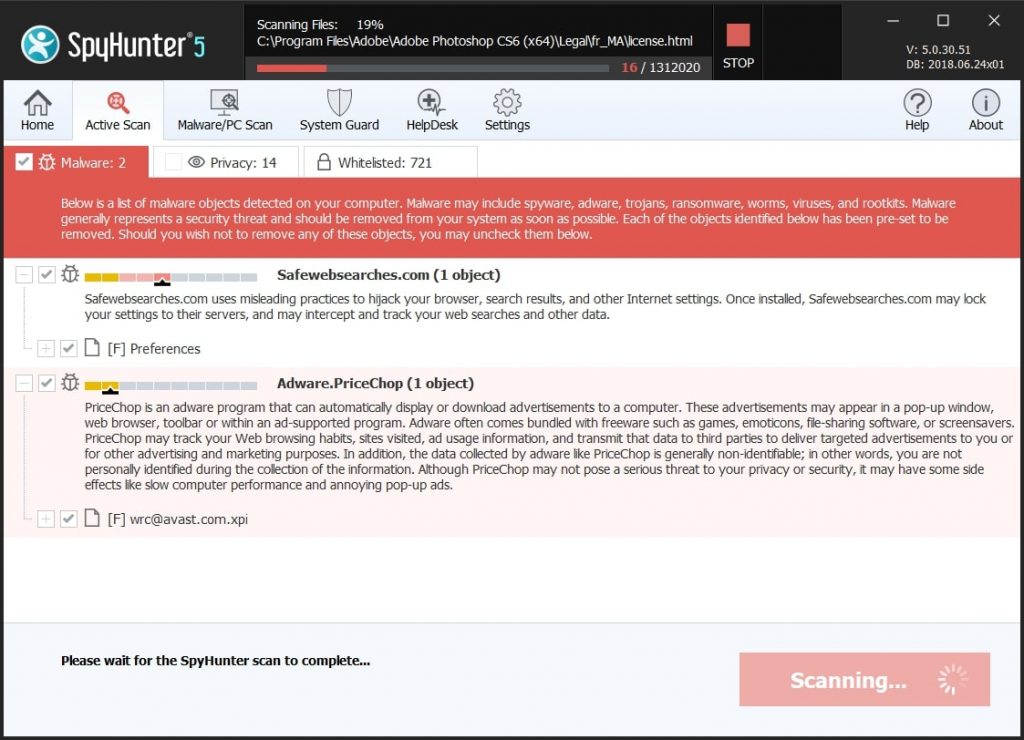
Quick and Easy Mac Malware Video Removal Guide
Bonus Step: How to Make Your Mac Run Faster?
Mac machines maintain probably the fastest operating system out there. Still, Macs do become slow and sluggish sometimes. The video guide below examines all of the possible problems that may lead to your Mac being slower than usual as well as all of the steps that can help you to speed up your Mac.
Step 2: Uninstall Expecting value line 1 column 1 and remove related files and objects
1. Hit the ⇧+⌘+U keys to open Utilities. Another way is to click on “Go” and then click “Utilities”, like the image below shows:
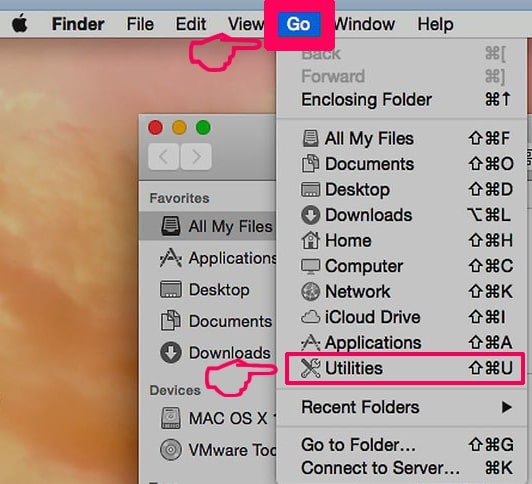
2. Find Activity Monitor and double-click it:
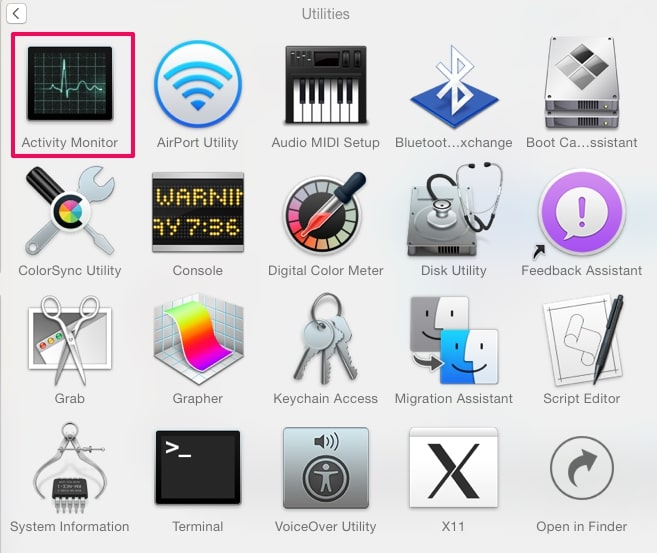
3. In the Activity Monitor look for any suspicious processes, belonging or related to Expecting value line 1 column 1:
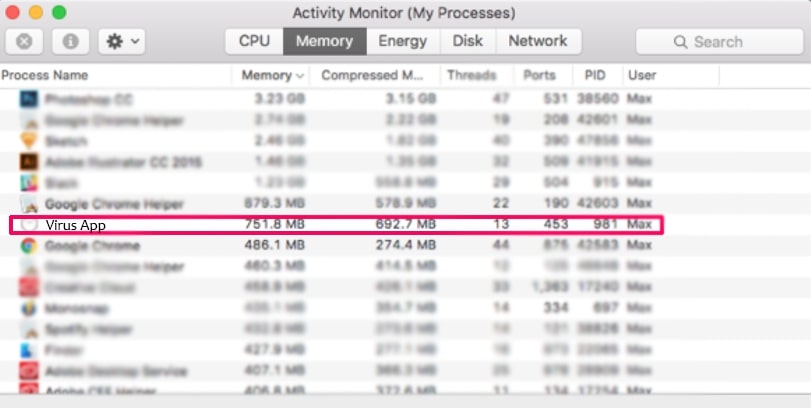
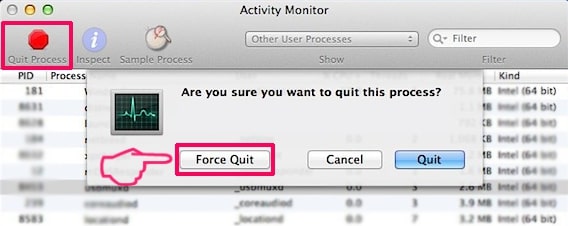
4. Click on the "Go" button again, but this time select Applications. Another way is with the ⇧+⌘+A buttons.
5. In the Applications menu, look for any suspicious app or an app with a name, similar or identical to Expecting value line 1 column 1. If you find it, right-click on the app and select “Move to Trash”.
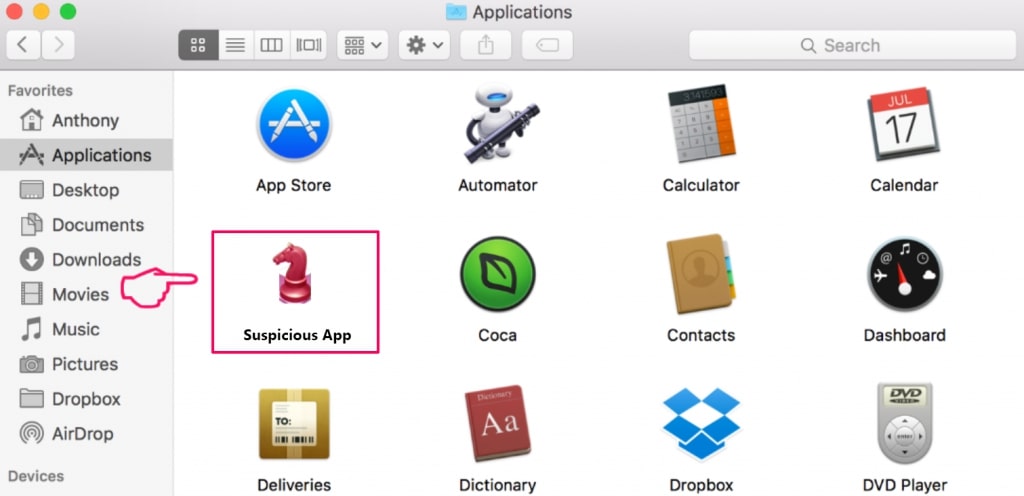
6. Select Accounts, after which click on the Login Items preference. Your Mac will then show you a list of items that start automatically when you log in. Look for any suspicious apps identical or similar to Expecting value line 1 column 1. Check the app you want to stop from running automatically and then select on the Minus (“-“) icon to hide it.
7. Remove any leftover files that might be related to this threat manually by following the sub-steps below:
- Go to Finder.
- In the search bar type the name of the app that you want to remove.
- Above the search bar change the two drop down menus to “System Files” and “Are Included” so that you can see all of the files associated with the application you want to remove. Bear in mind that some of the files may not be related to the app so be very careful which files you delete.
- If all of the files are related, hold the ⌘+A buttons to select them and then drive them to “Trash”.
In case you cannot remove Expecting value line 1 column 1 via Step 1 above:
In case you cannot find the virus files and objects in your Applications or other places we have shown above, you can manually look for them in the Libraries of your Mac. But before doing this, please read the disclaimer below:
1. Click on "Go" and Then "Go to Folder" as shown underneath:
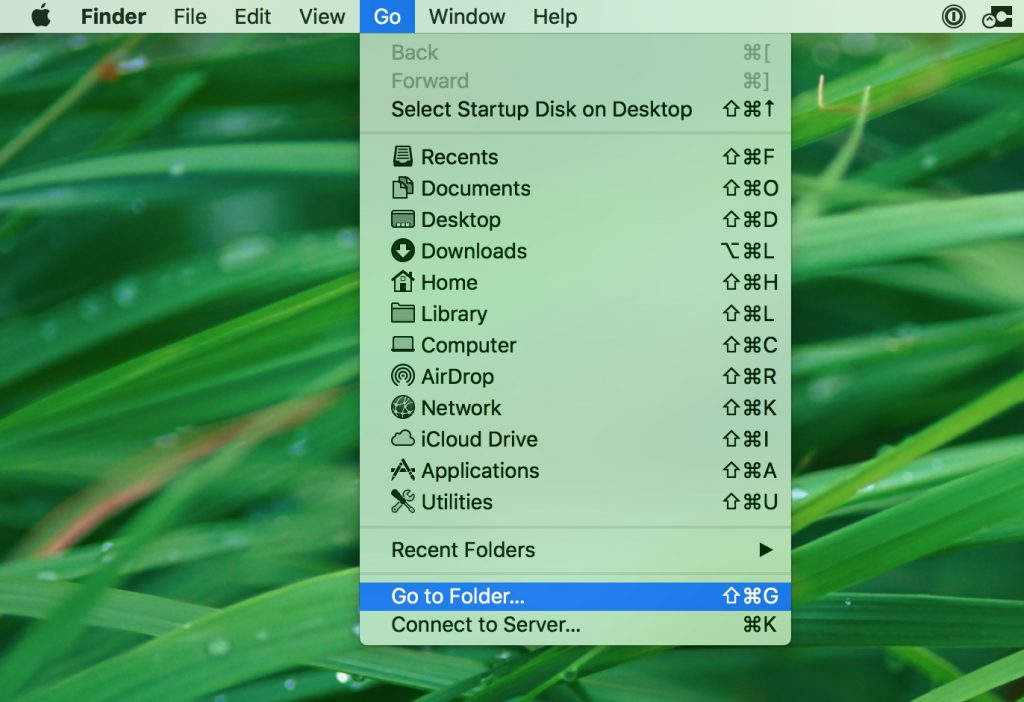
2. Type in "/Library/LauchAgents/" and click Ok:
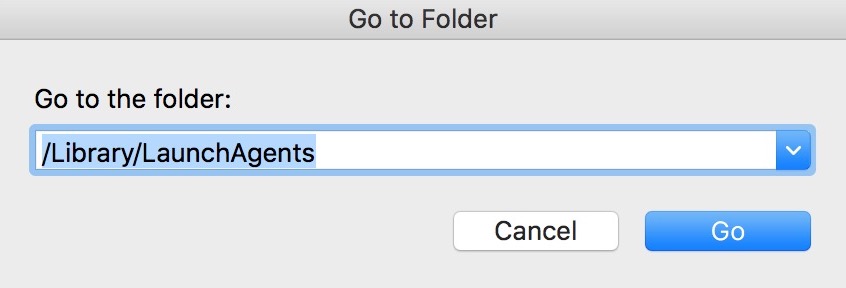
3. Delete all of the virus files that have similar or the same name as Expecting value line 1 column 1. If you believe there is no such file, do not delete anything.
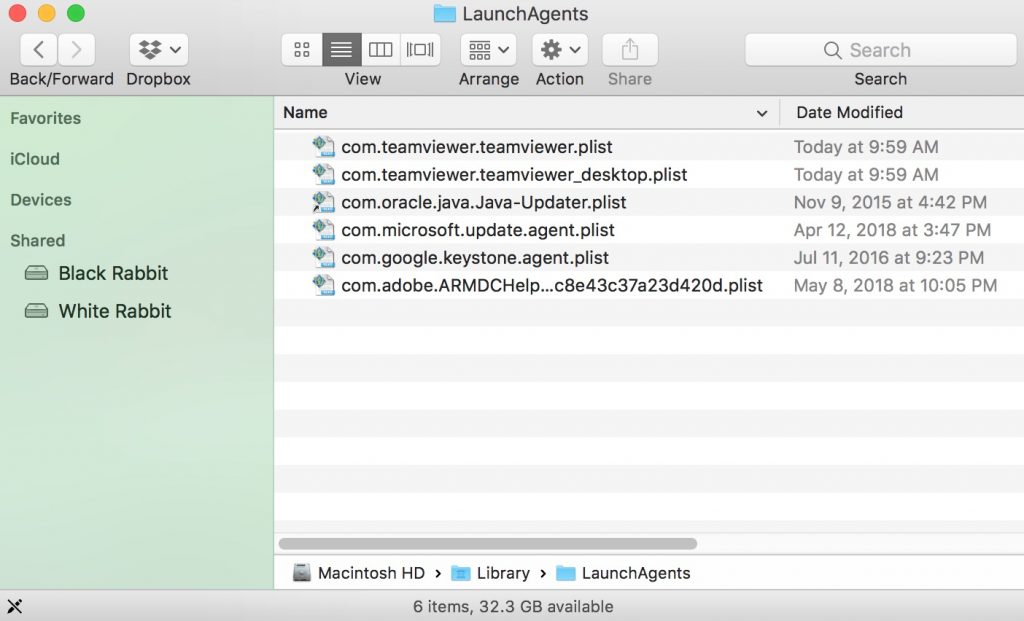
You can repeat the same procedure with the following other Library directories:
→ ~/Library/LaunchAgents
/Library/LaunchDaemons
Tip: ~ is there on purpose, because it leads to more LaunchAgents.
Step 3: Remove Expecting value line 1 column 1 – related extensions from Safari / Chrome / Firefox
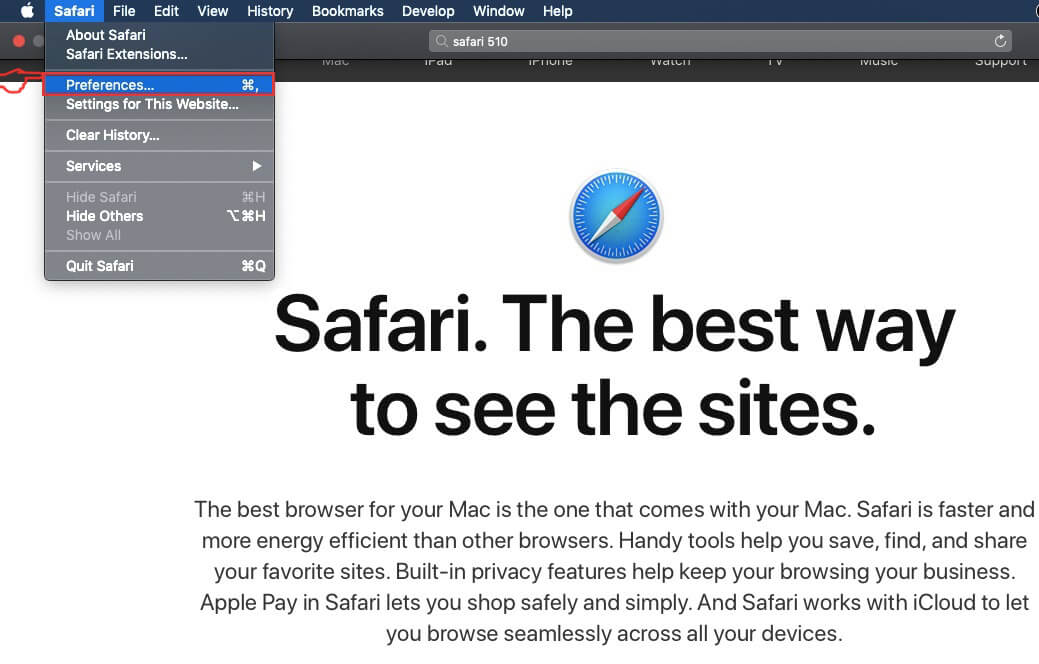

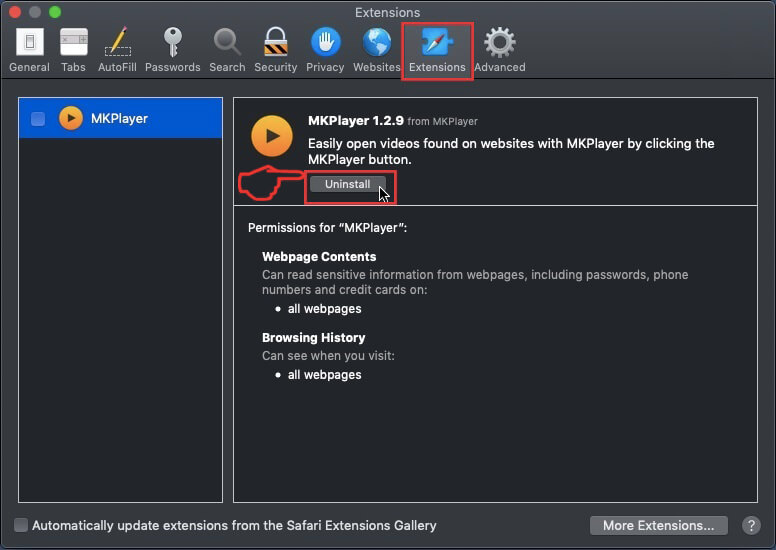
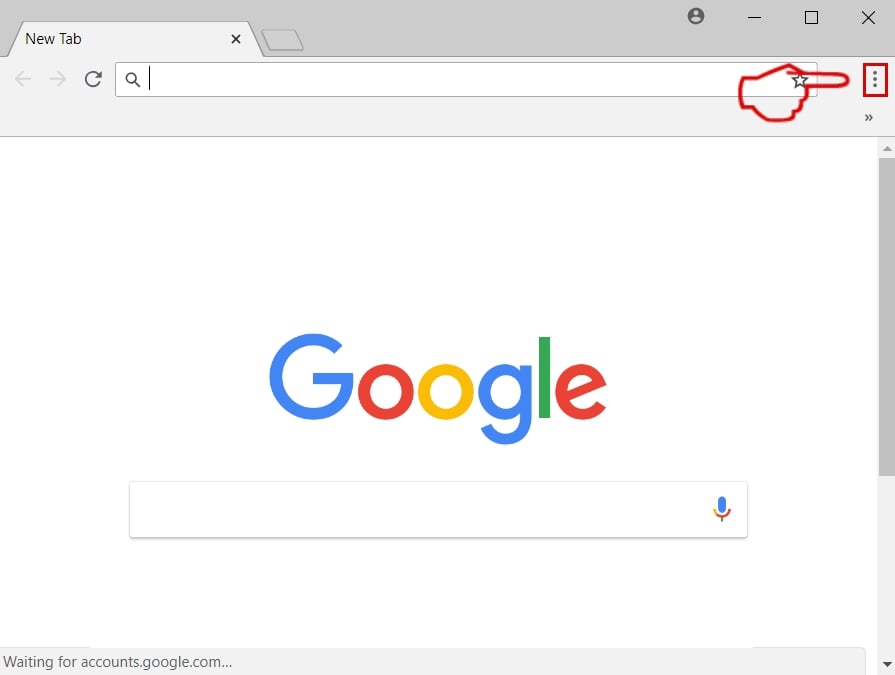
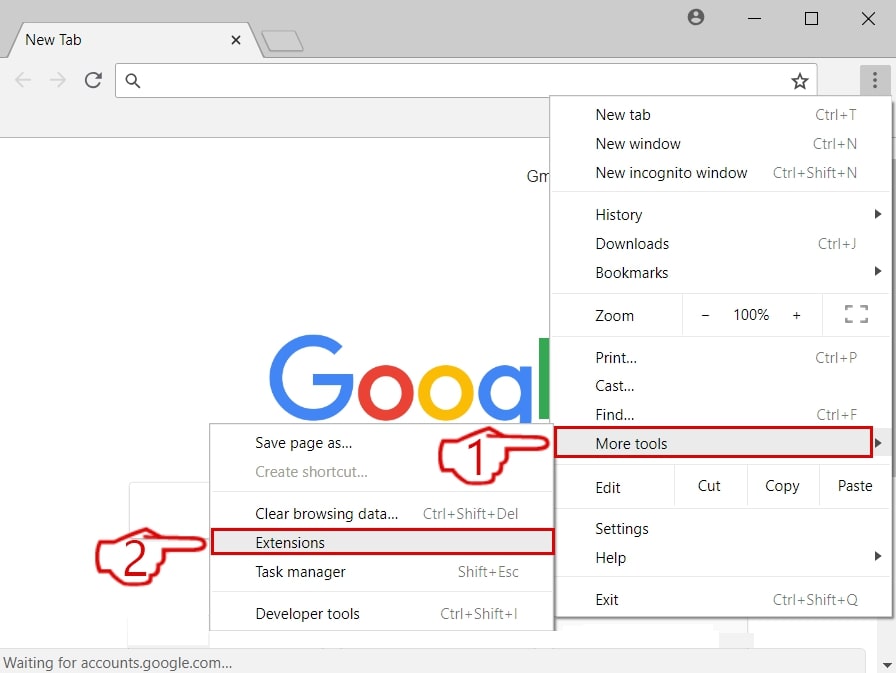
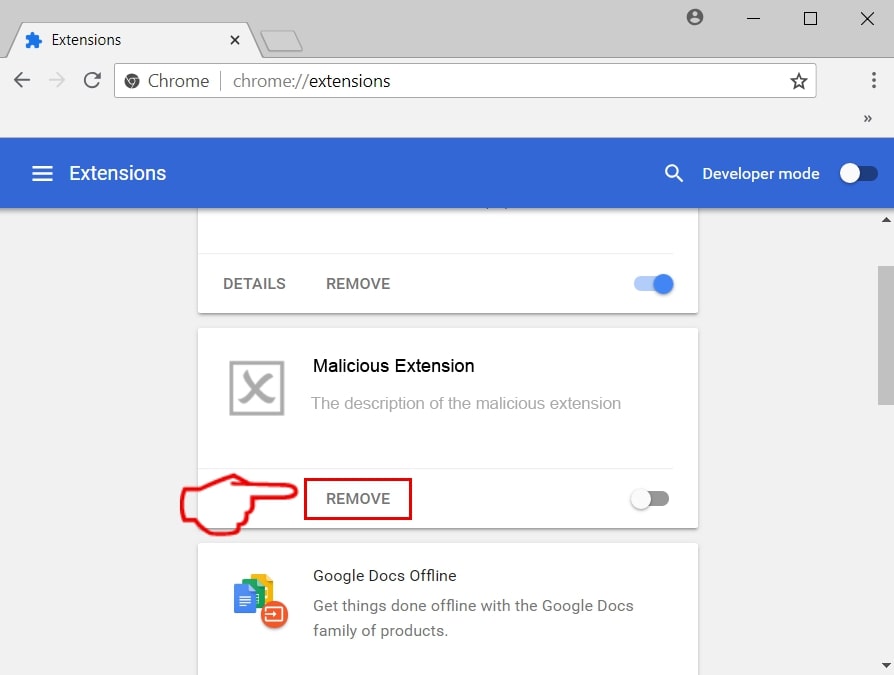
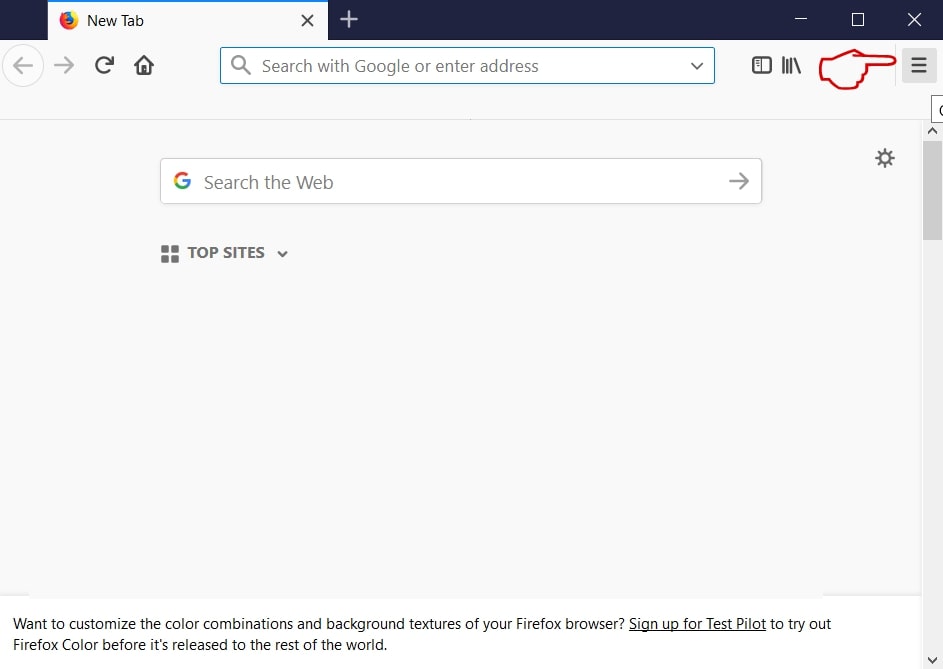
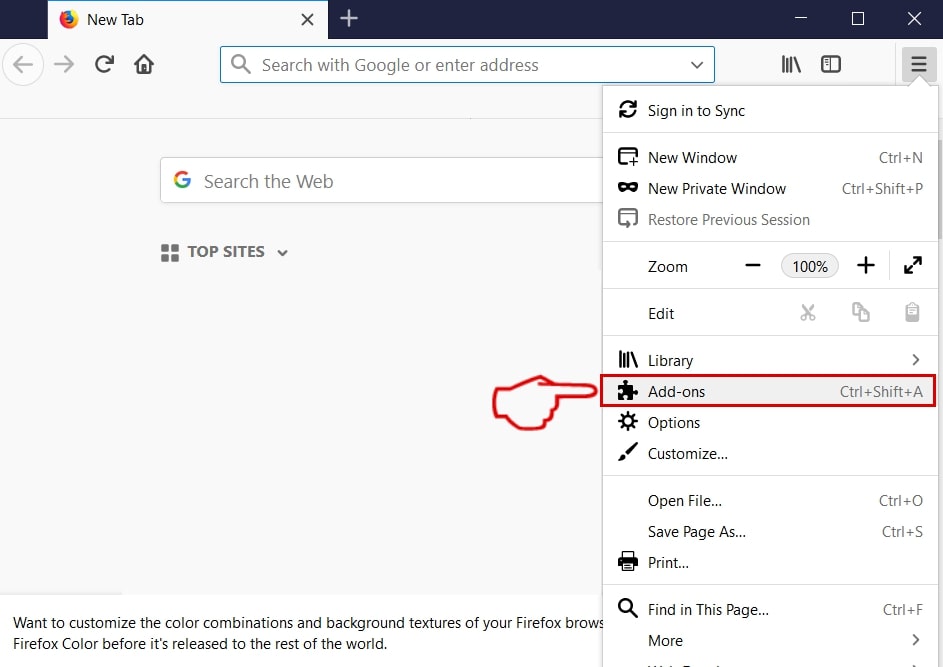
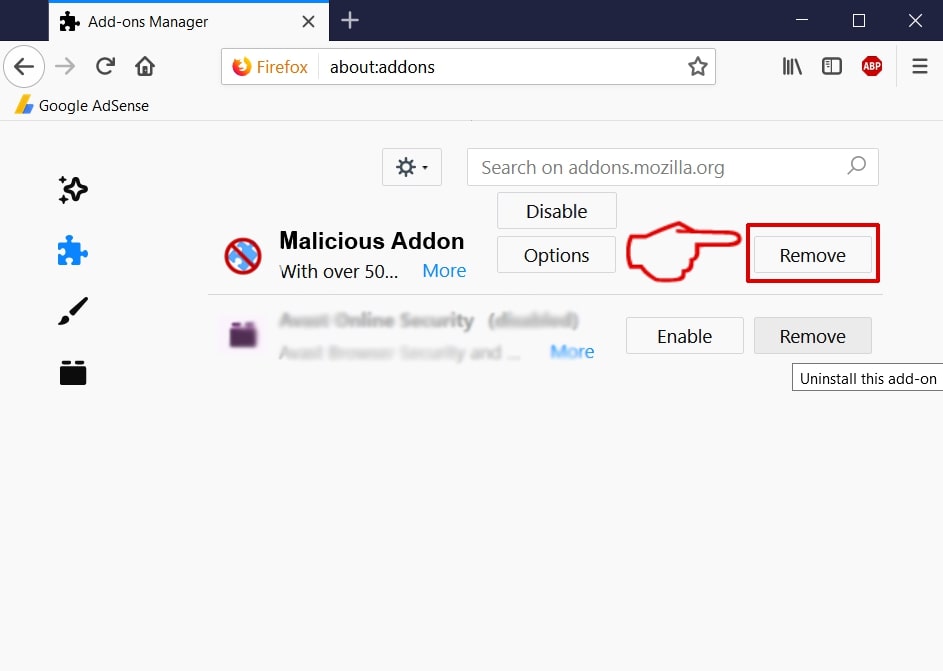
Expecting value line 1 column 1-FAQ
What is Expecting value line 1 column 1 on your Mac?
The Expecting value line 1 column 1 threat is probably a potentially unwanted app. There is also a chance it could be related to Mac malware. If so, such apps tend to slow your Mac down significantly and display advertisements. They could also use cookies and other trackers to obtain browsing information from the installed web browsers on your Mac.
Can Macs Get Viruses?
Yes. As much as any other device, Apple computers do get malware. Apple devices may not be a frequent target by malware authors, but rest assured that almost all of the Apple devices can become infected with a threat.
What Types of Mac Threats Are There?
According to most malware researchers and cyber-security experts, the types of threats that can currently infect your Mac can be rogue antivirus programs, adware or hijackers (PUPs), Trojan horses, ransomware and crypto-miner malware.
What To Do If I Have a Mac Virus, Like Expecting value line 1 column 1?
Do not panic! You can easily get rid of most Mac threats by firstly isolating them and then removing them. One recommended way to do that is by using a reputable malware removal software that can take care of the removal automatically for you.
There are many Mac anti-malware apps out there that you can choose from. SpyHunter for Mac is one of the reccomended Mac anti-malware apps, that can scan for free and detect any viruses. This saves time for manual removal that you would otherwise have to do.
How to Secure My Data from Expecting value line 1 column 1?
With few simple actions. First and foremost, it is imperative that you follow these steps:
Step 1: Find a safe computer and connect it to another network, not the one that your Mac was infected in.
Step 2: Change all of your passwords, starting from your e-mail passwords.
Step 3: Enable two-factor authentication for protection of your important accounts.
Step 4: Call your bank to change your credit card details (secret code, etc.) if you have saved your credit card for online shopping or have done online activiites with your card.
Step 5: Make sure to call your ISP (Internet provider or carrier) and ask them to change your IP address.
Step 6: Change your Wi-Fi password.
Step 7: (Optional): Make sure to scan all of the devices connected to your network for viruses and repeat these steps for them if they are affected.
Step 8: Install anti-malware software with real-time protection on every device you have.
Step 9: Try not to download software from sites you know nothing about and stay away from low-reputation websites in general.
If you follow these reccomendations, your network and Apple devices will become significantly more safe against any threats or information invasive software and be virus free and protected in the future too.
More tips you can find on our MacOS Virus section, where you can also ask any questions and comment about your Mac problems.
About the Expecting value line 1 column 1 Research
The content we publish on SensorsTechForum.com, this Expecting value line 1 column 1 how-to removal guide included, is the outcome of extensive research, hard work and our team’s devotion to help you remove the specific macOS issue.
How did we conduct the research on Expecting value line 1 column 1?
Please note that our research is based on an independent investigation. We are in contact with independent security researchers, thanks to which we receive daily updates on the latest malware definitions, including the various types of Mac threats, especially adware and potentially unwanted apps (PUAs).
Furthermore, the research behind the Expecting value line 1 column 1 threat is backed with VirusTotal.
To better understand the threat posed by Mac malware, please refer to the following articles which provide knowledgeable details.




Hello. I’ve been seeing this message on my MacBook Air for a while and can’t remove it. I am running the latest version of Monterey and thought I should be protected from such issues. Any ideas how to remove it for good? Thanks!